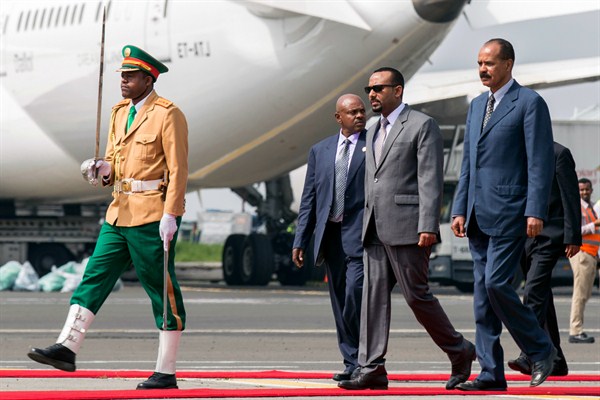ASMARA, Eritrea—The streets of Eritrea’s capital in the runup to this year’s Independence Day celebrations on May 24 were unusually quiet. But cafes and restaurants were full of many Eritreans from the diaspora who had traveled back to mark 28 years of national independence. “I come every year on this occasion,” an Eritrean living in Germany told me, “to celebrate my country.”
Most of the people I know who put up with life in Eritrea the whole year, however, do not feel like celebrating. For them, the holiday is a day off work that they will spend at home, in part because security tightens, with soldiers or police on every street corner. In the past few months, arbitrary arrests have apparently increased, so everyone is cautious and seems to avoid the center of the city. It is impossible to verify these stories, or other rumors of splits within the ruling party and increasing forms of dissent, given how opaque politics are in Eritrea. The only visible sign I encountered last month was anti-government graffiti inside a building, profanely calling out the ruling party, the People’s Front for Democracy and Justice. Photos of other anti-government graffiti have recently circulated on Eritrean social media.
The government seemed nervous enough to block social media sites like Facebook and its messaging app in the weeks before Independence Day. The internet itself was also much slower than usual. “They cut down the allowance of everybody during the celebrations,” one internet provider in Asmara admitted to me.

